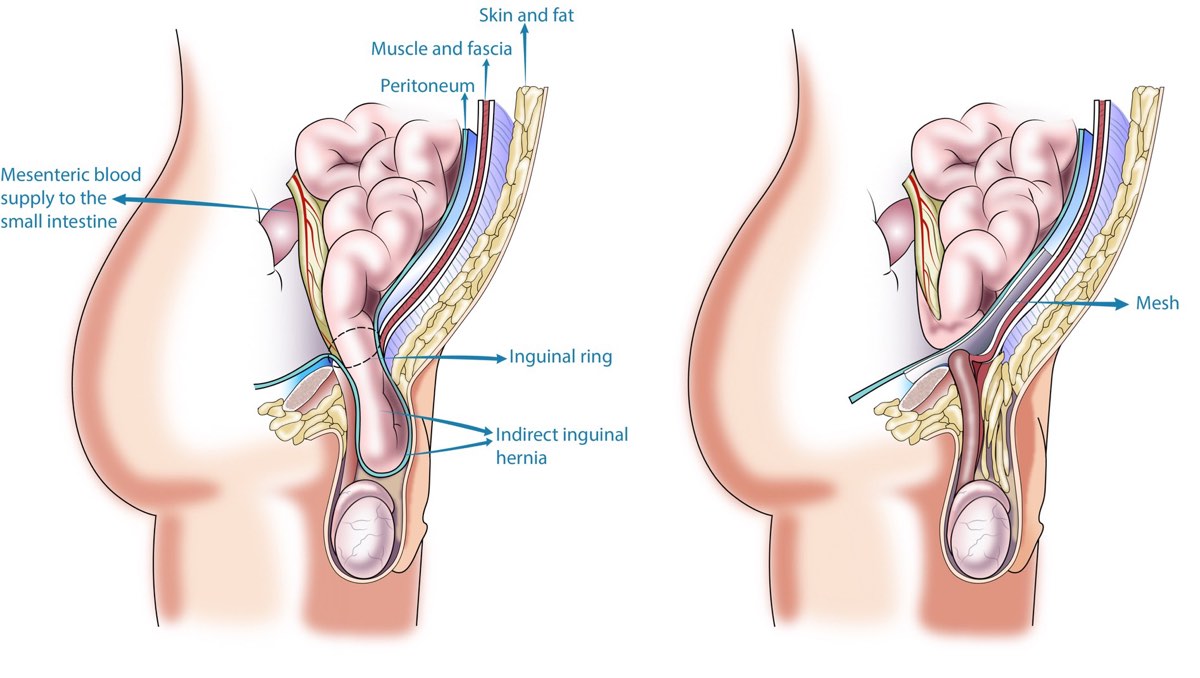Hernia Repair in Bulgaria
Search and Compare the Best Clinics and Doctors at the Lowest Prices for Hernia Repair in Bulgaria

Find the best clinics for Hernia Repair in Bulgaria
No pricing info available
Mexico offers the best prices Worldwide
Price: $ 260
From 3 verified reviews
Biser Stoyanov, 28 February 2019
A maintained medical center welcomes you politely.
Clinic Akta Medika, can be found in Centrum, Sofia, Bulgaria and offers its patients Hernia Repair procedures as well as 21 other procedures, across 14 different procedure categories. At present, there is no pricing information for Hernia Repair procedures at Clinic Akta Medika. The pricing information is quite specialised, so it's only available on request. The lead specialist at the Clinic will be carrying out all the treatments, and Clinic Akta Medika is not accredited by any recognised accreditations institutions.
- Home
- Bulgaria
WHY US?
At Medijump, we're making medical easy. You can search, compare, discuss, and book your medical all in one place. We open the door to the best medical providers worldwide, saving you time and energy along the way, and it's all for FREE, no hidden fees, and no price markups guaranteed. So what are you waiting for?

Free

Best Price

Widest Selection

Risk-Free
What you need to know about Hernia Repair in Bulgaria

Hernia repair is a surgical procedure to correct a hernia – a condition when internal tissue or organ pushes through the muscle. It is typically performed when the hernia becomes strangulated, causes pain or discomfort, grows larger, or when the tissue becomes trapped in the abdominal wall.
What does a Hernia Repair Procedure Involve?
Hernia repair can be performed either with open surgery or laparoscopic surgery. Both are carried out under general anesthetic and involve returning the displaced organ or tissue to the body part that should contain it. Laparoscopic hernia repair surgery is preferred because it is minimally invasive and the recovery period is easier.
How Long Should I Stay in Bulgaria for a Hernia Repair Procedure?
You may need to stay in the hospital for one to three days, but you must not fly home right after you are discharged from the hospital. Plan to stay in the Bulgaria for around 7 to 14 days or until you get your surgeon's approval because traveling long-distance can lead to tearing of the sutures. You will attend a follow-up appointment during your stay to monitor your condition.
What's the Recovery Time for Hernia Repair Procedures in Bulgaria?
It may take around 3 to 6 weeks for a full recovery after open hernia surgery. Expect to take two weeks off work after the surgery. If you have laparoscopic surgery, you should be able to return to work and your normal routine within a week.
What sort of Aftercare is Required for Hernia Repair Procedures in Bulgaria?
Apply gentle pressure to your wound using your hand or a small pillow to make sneezing, coughing, and moving more comfortable. You can do some gentle exercises to help with the healing process, but avoid strenuous activities for around 4 to 6 weeks. Your surgeon will give you a set of instructions regarding your diet, caring for your wound, hygiene, and bathing. Make sure to follow all instructions.
What's the Success Rate of Hernia Repair Procedures in Bulgaria?
Hernia repair is proven to be effective and safe. Only around 11% of patients suffer from a recurrence following the surgery. Also, only 10 % to 12% of patients will experience chronic pain after surgery. Although the risks and side effects are rare, you still need to be aware of them. They typically include infection, blood clots, pain, and recurrence.
Are there Alternatives to Hernia Repair Procedures in Bulgaria?
If surgery is not an option for you, your alternative is to get non-surgical hernia treatments, such as wearing a corset, truss, or binder. They will keep the hernia in place and apply gentle pressure on it. Make sure to use them only under a doctor’s supervision.
What Should You Expect Before and After the Procedure
A hernia can be painful, uncomfortable, or even life-threatening. After a hernia repair, you no longer feel pain, discomfort, or any other symptoms. Your risk of becoming seriously ill has been reduced significantly.
Whilst the information presented here has been accurately sourced and verified by a medical professional for its accuracy, it is still advised to consult with your doctor before pursuing a medical treatment at one of the listed medical providers
No Time?
Tell us what you're looking for and we'll reachout to the top clinics all at once
Enquire Now

Popular Procedures in Bulgaria
Prices Start From $42

Prices Start From $4

Prices Start From $520

Prices Start From $520

Prices Start From $714

Recommended Medical Centers in Bulgaria for Hernia Repair

- Interpreter services
- Translation service
- Religious facilities
- Medical records transfer
- Medical travel insurance
- Health insurance coordination
- TV in the room
- Safe in the room
- Phone in the room
- Private rooms for patients available

- Interpreter services
- Translation service
- Religious facilities
- Medical records transfer
- Medical travel insurance
- Health insurance coordination
- TV in the room
- Safe in the room
- Phone in the room
- Private rooms for patients available

- Interpreter services
- Translation service
- Religious facilities
- Medical records transfer
- Medical travel insurance
- Health insurance coordination
- TV in the room
- Safe in the room
- Phone in the room
- Private rooms for patients available

- Interpreter services
- Translation service
- Religious facilities
- Medical records transfer
- Medical travel insurance
- Health insurance coordination
- TV in the room
- Safe in the room
- Phone in the room
- Private rooms for patients available

- Interpreter services
- Translation service
- Religious facilities
- Medical records transfer
- Medical travel insurance
- Health insurance coordination
- TV in the room
- Safe in the room
- Phone in the room
- Private rooms for patients available

- Interpreter services
- Translation service
- Religious facilities
- Medical records transfer
- Medical travel insurance
- Health insurance coordination
- TV in the room
- Safe in the room
- Phone in the room
- Private rooms for patients available

- Interpreter services
- Translation service
- Religious facilities
- Medical records transfer
- Medical travel insurance
- Health insurance coordination
- TV in the room
- Safe in the room
- Phone in the room
- Private rooms for patients available

- Interpreter services
- Translation service
- Religious facilities
- Medical records transfer
- Medical travel insurance
- Health insurance coordination
- TV in the room
- Safe in the room
- Phone in the room
- Private rooms for patients available

- Interpreter services
- Translation service
- Religious facilities
- Medical records transfer
- Medical travel insurance
- Health insurance coordination
- TV in the room
- Safe in the room
- Phone in the room
- Private rooms for patients available

- Interpreter services
- Translation service
- Religious facilities
- Medical records transfer
- Medical travel insurance
- Health insurance coordination
- TV in the room
- Safe in the room
- Phone in the room
- Private rooms for patients available
Hernia Repair in and around Bulgaria
Introduction
Bulgaria has plenty to offer and tourists are going to be very impressed with the country’s mountainous landscapes, beautiful Black Sea beaches, fascinating history, friendly locals, lively nightlife, and affordability. Although the country’s holiday tourism is very much on the radar, it is also actually quite popular with medical tourists, due to its modern medical centers, highly trained medical professionals, state-of-the-art equipment, affordable healthcare, and mineral baths, thousands of medical tourists visit this country each year. Most of the medical tourists come for dental treatment, orthopedic surgery, elective surgery, neurosurgery, as well as health screening.
Popular Cities and Regions in Bulgaria
Bulgaria’s laid-back capital city, Sofia, is truly a must-visit. It is full of museums, Ottoman mosques, communist architecture, chic galleries, Eastern Orthodox churches, amazing restaurants, and upbeat clubs. One of the most popular landmarks in the country is the Aleksander Nevski Cathedral, which is an awe-inspiring church built between 1882 and 1912 to honor 200,000 Russian soldiers who died fighting for the independence of Bulgaria during the Russo-Turkish war. If you want to relax on beautiful beaches visit Varna, which is a major tourist destination during the summer. The second-largest, city in Bulgaria is Plovdiv and it is one of the oldest continuously inhabited cities in Europe. Tourists are attracted by the Roman Amphitheatre, Archeological Museum, and Tsar Simeon Central Garden.
Transport in Bulgaria
Most international tourists will arrive at Sofia Airport, which serves flights to most numerous major cities in Europe and the Middle East. There are several budget airlines that operate flights from this airport, including Ryanair and Wizz Air. Domestic flights are available, but they tend to be expensive. Therefore, to travel from one city to another, trains and buses are the best option. Buses and trains are punctual and affordable. However, if you are in a hurry, you should avoid trains as they can be a little slow. To travel around big cities, taxis are widely available and are really cheap. Just make sure you choose a licensed taxi to avoid being overcharged.
Visas in Bulgaria
While Bulgaria is not yet a part of the Schengen Area, it has a visa policy that is based on the Schengen system. Therefore, holders of Schengen Visa are allowed to enter the country. Additionally, citizens of 62 countries, including the US, Australia, and the UAE, can stay in the country for up to 90 days without a visa.
Weather in Bulgaria
From June to August, Bulgaria experiences summer. The weather can get a bit hot and humid, with an average temperature of 19°C to 21°C. July is the wettest month in the country. Winter, from December to February, is usually freezing. Autumn and Spring bring pleasant weather.
Additional Info
- Local Currency: The official currency is the Bulgarian Lev (BGN). 1 USD will get you approx. 1.8 BGN.
- Money & Payments: You can find ATMs in every city in the country. Credit cards are accepted in bigger restaurants and hotels. Tipping is sometimes expected.
- Local Language: Bulgarian is the official language in Bulgaria. Turkish and Roma are spoken by a minority of people. English is becoming more and more common in the country, but it is not widely spoken.
- Local Culture and Religion: Christianity dominates the population of Bulgaria, followed by Islam and Judaism.
- Public holidays: Bulgaria celebrates several historical and religious holidays, such as Orthodox Good Friday, Orthodox Easter Day, Independence Day, Culture and Literacy Day, Christmas Day, and Liberation Day.
Popular Searches
- Plastic Surgery in Thailand
- Dental Implants in Thailand
- Hair Transplant in Thailand
- Breast Augmentation Thailand
- Gastric Sleeve in Thailand
- Gender Reassignment Surgery in Thailand
- Laser Hair Removal in Bangkok
- Botox in Bangkok
- Dermatology in Bangkok
- Breast Augmentation in Bangkok
- Coolsculpting in Bangkok
- Veneers in Turkey
- Hair Transplant in Turkey
- Rhinoplasty in Turkey
- Stem Cell Therapy in Mexico
- Rhinoplasty in Mexico
- Liposuction in Mexico
- Coolsculpting in Tijuana
- Rhinoplasty in Korea
- Scar Removal in Korea
- Gastric Sleeve in Turkey
- Bone Marrow Transplant in India
- Invisalign in Malaysia
- Plastic Surgery in the Dominican Republic
- Tummy Tuck in the Dominican Republic
- Plastic and Cosmetic Surgery in Poland
- Rhinoplasty in Poland
- Hair Implant in Poland
- Dental Implants in Poland
- IVF in Turkey

